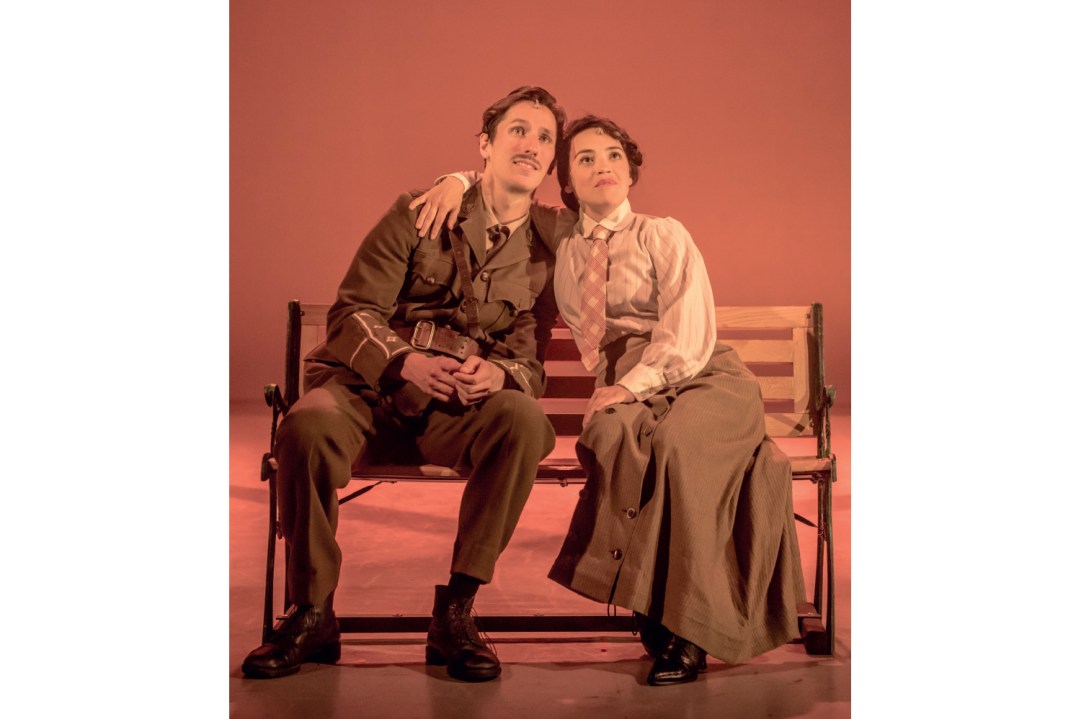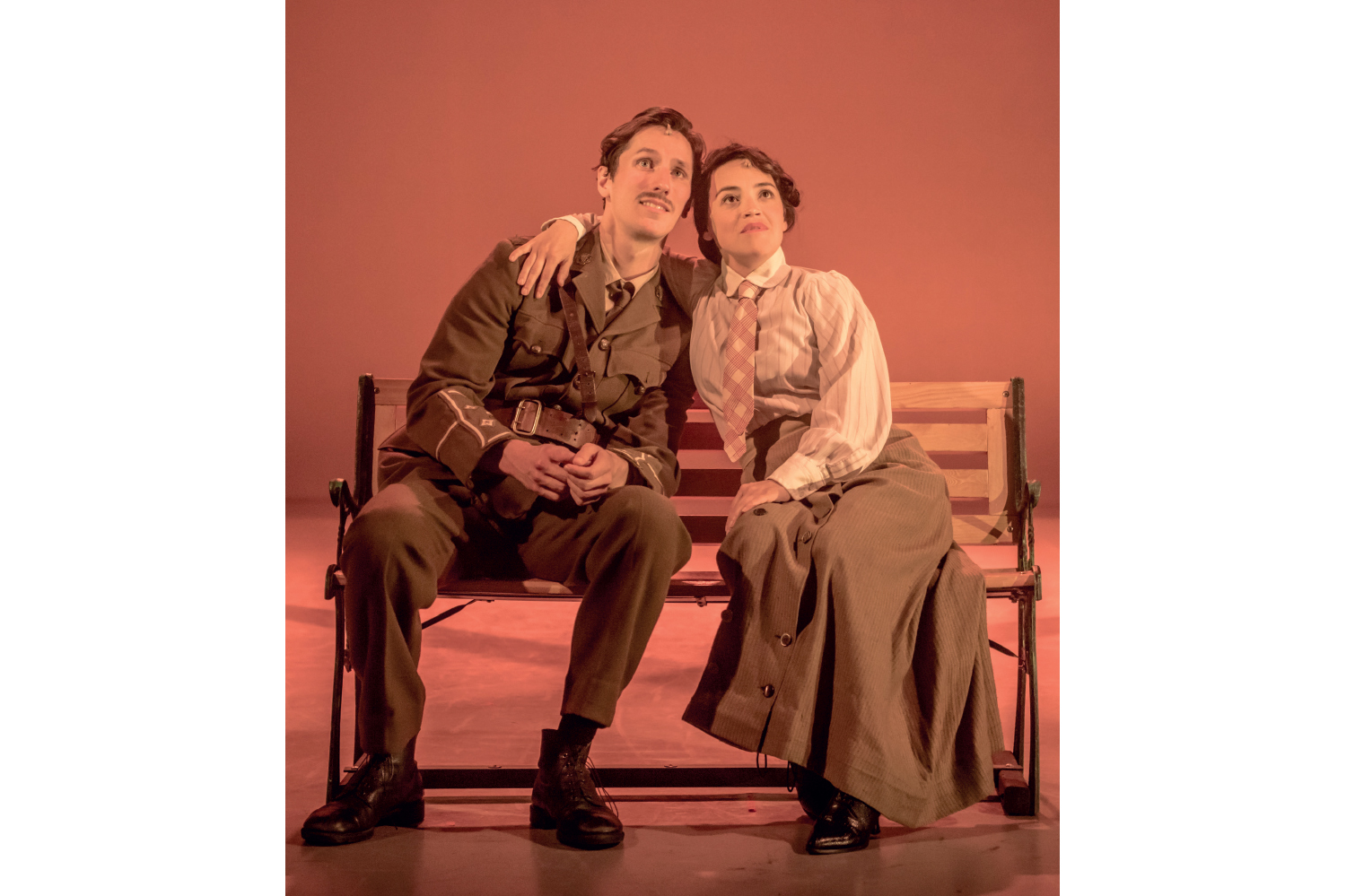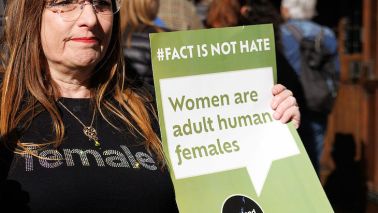‘Ring out your bells for me, ivory keys! Weave out your spell for me, orchestra please!’ It’s lush stuff, the music of Ivor Novello, and when the Buxton International Festival announced a new musical ‘built around’ his songs, the heart took flight. Novello is one of those fringe passions that are, one suspects, a lot less marginal than fashion might suggest. If his great hit operettas of the 1930s and 1940s – The Dancing Years, King’s Rhapsody and the rest – really are unrevivable (and the jury is still out on that), a sympathetic, newly constructed showcase for his finest material in the manner of the Gershwin reboot Crazy For You might be the next best thing.
Only the fact that Novello’s best-known song refers to lilacs spared us a final shower of poppies
The Land of Might-Have-Been is not that show. I’m still not sure exactly what it is, and possibly its creators, composer Iain Farrington, writer (and Festival CEO) Michael Williams and director Kimberley Sykes, haven’t quite worked it out either. The plot is based on the life of Vera Brittain, who grew up in Buxton (she hated the place), and arms were apparently twisted by the late Baroness Williams of Crosby, Brittain’s daughter and a former grandee of the Festival. Superficially, it’s Testament of Youth: The Musical, although a disclaimer in the programme insists otherwise. The Vera on stage is such a prig that she sends you back to the book in disbelief. Surely the real Brittain couldn’t have been as insufferable as this?
Actually, she is, at times; but she’s also conflicted, perceptive and painfully honest, none of which makes it on stage. The Land of Might-Have-Been begins in 1914 but the central characters possess a full set of 21st-century values and social attitudes and are duly appalled by the braying toffs and baying plebs of the period they inhabit.








Comments
Join the debate for just £1 a month
Be part of the conversation with other Spectator readers by getting your first three months for £3.
UNLOCK ACCESS Just £1 a monthAlready a subscriber? Log in